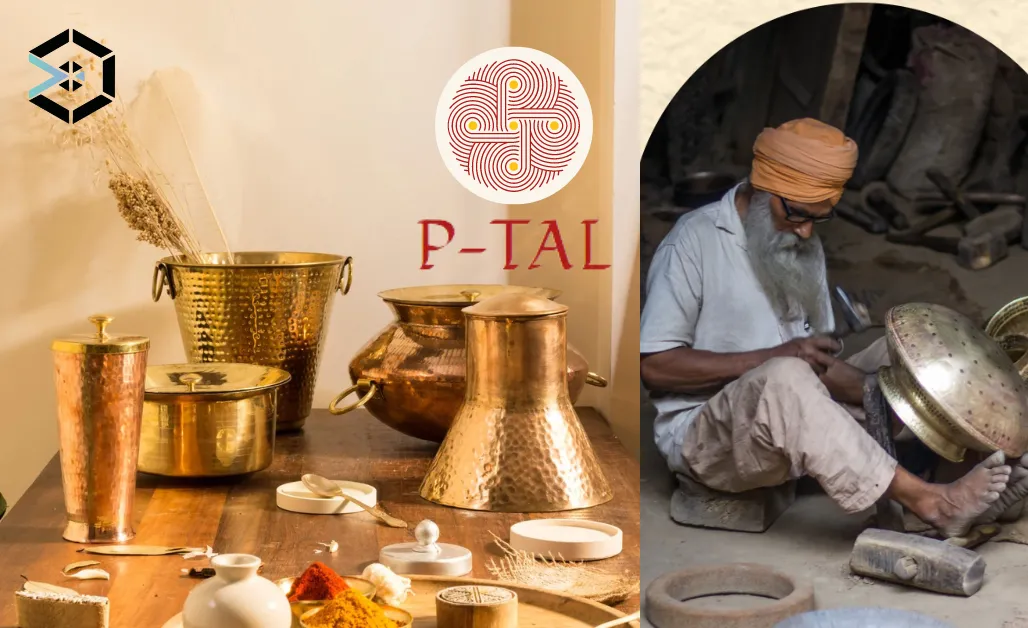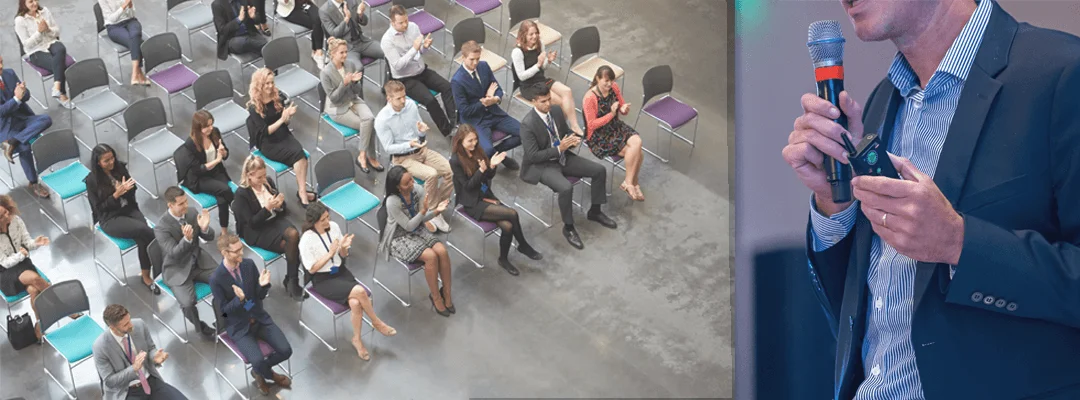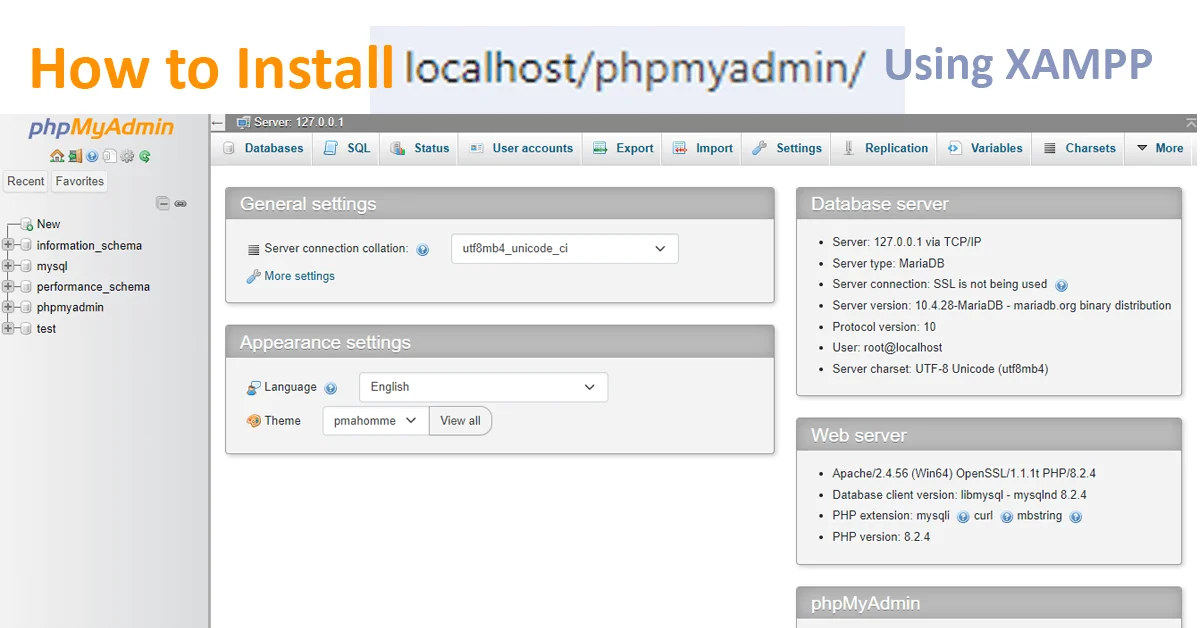P-Tal is a new startup standout from Shark Tank India Season 3 that grabbed people’s attention. The company offers something special in homeware. With their vision of “Har Ghar P-tal” (P-tal utensils in every house), they asked for ₹50 lakhs for 1% equity from the Sharks.
Get into P-Tal’s fascinating journey and uncover the story behind this innovative homeware brand. Here is the complete Market Analysis of P-Tal, including its current position, financial performance, investment-specific goals, and more.
Keep reading to find out more about the company and how they secured a 5-shark deal!
Table of Contents
P-Tal Startup’s Overview
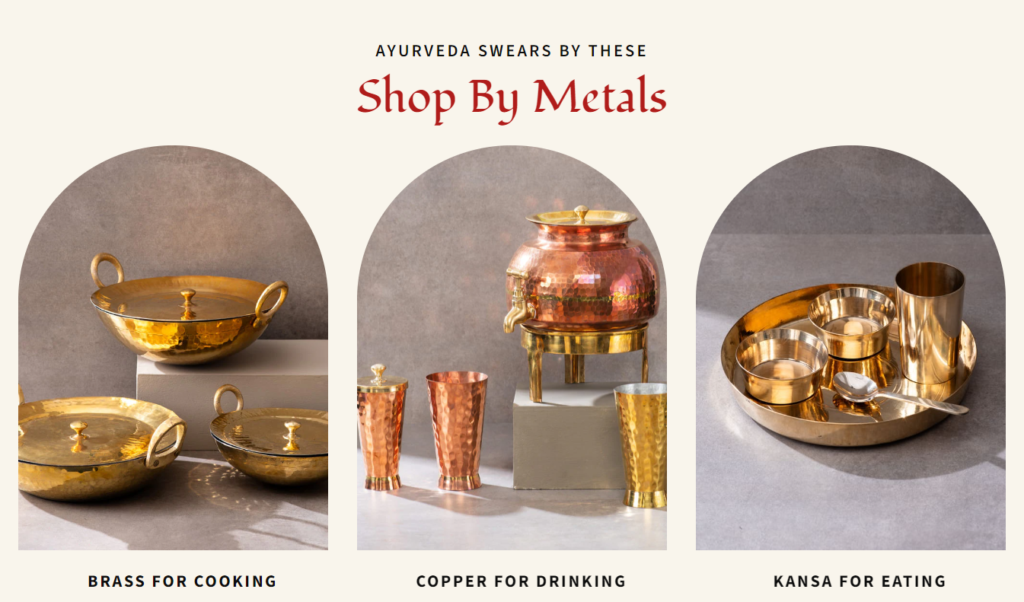
P-Tal (Punjab Thathera Art Legacy), is a Punjab-based startup founded in 2019 by Aditya Agarwal, Kirti Goel, and Gaurav Garg, that was started as a college project under SRCC by Aditya.
The company focuses on making traditional utensils from brass, copper, and bronze, following old Ayurvedic practices. They have mixed old traditions with new ideas in homeware. These practices bring back ancient ways for today’s health-conscious people & keeping food healthy and tasting good.
As the pitchers in the shark tank claimed, these utensils are made by Thathera Community from the Jandiala Guru, Punjab, India. This community is known for their traditional brass, copper, and bronze utensil craftsmanship. Their crafting is the only craft that is a part of UNESCO’s Intangible Cultural Heritage.
Through P-Tal, the founders want to revive this forgotten craft and become India’s No. 1 household brand of everything brass, copper and bronze.
The company follows the principal’s of our grandparents, who used to say “Pital me pakao, Kanse me khao, and tambe me peeyo”, meaning cook in brass, eat in bronze and drink in copper.
About the Founders
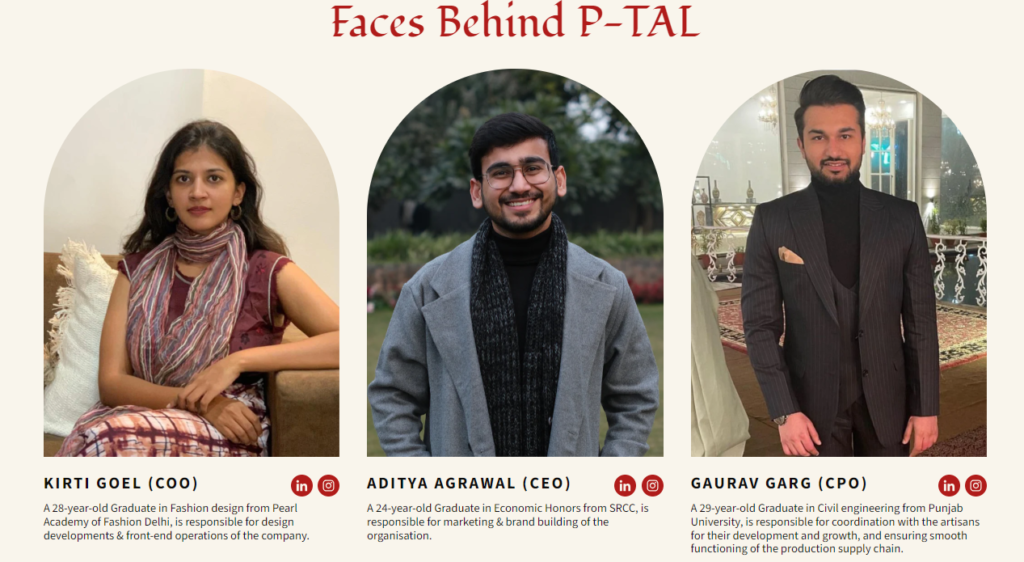
Aditya Aggarwal, CEO
Aditya Aggarwal is the Chief Executive Officer (CEO) and founder of P-Tal. He completed his Economics Honors Graduation from the prestigious Shri Ram College of Commerce, University of Delhi and is now responsible for the marketing and brand building of the organization.
Aditya started P-Tal as an Inactus Project in SRCC. Inactus is a society in Indian colleges where students undertake Social Entrepreneurial Projects.
Kirti Goel, COO
Kirti is the Chief Operations Officer (COO) and co-founder of the company. She is a fashion graduate from Pearl Academy, Delhi and is responsible for design developments and front-end operations of the company.
She joined P-Tal as a designer when Aditya needed help with product designs. Kirti even moved from Chandigarh to Amritsar, so that she could work directly with the artisans and develop the designs for modern utensils from the old and traditional utensils.
Gaurav Garg, CPO
Gaurav is the Chief Production Officer (CPO) and co-founder of P-Tal. He is a civil engineer from Punjab University and is responsible for the smooth functioning of the production supply chain.
Gaurav is from Punjab and has seen the use of such utensils in his house and how they gradually disappeared.
P-Tal Product Details
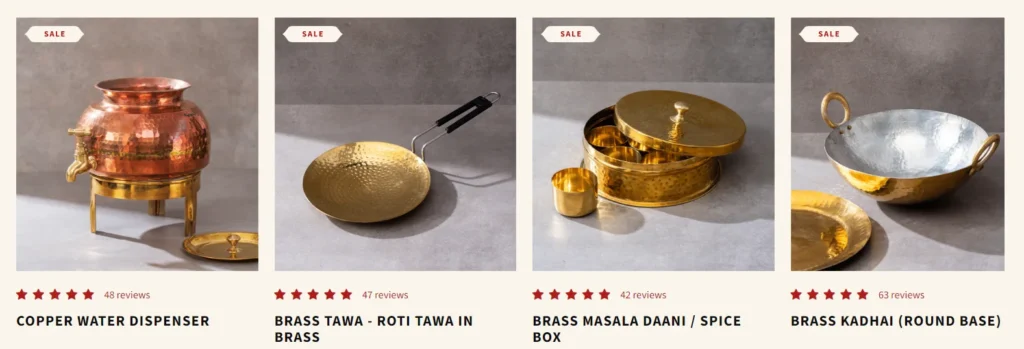
P-Tal is an ayurvedic and authentic India kitchenware brand that sells brass, copper and bronze utensils that can be used to cook, eat and serve food and water.
P-Tal’s products are rich in tradition and craftsmanship. It stands as a testament to sustainability and cultural preservation. They specialize in Kitchen utensils.
Key Product Details:
- Ayurvedic Materials: Metals like Brass, Copper and Bronze are non-toxic, boost immunity, aid in digestion and improve our overall health
- Health Benefits: These utensils boast health advantages, preserving food nutrients, enriching taste, and aligning with ancient Ayurvedic principles.
- Authentic: All their products are made from pure metal sheets and are ISO certified.
- Sustainability: P-Tal’s commitment to sustainability shines through its eco-friendly production process and utilization of natural materials.
All P-Tal products have a hammering finish, which is an identifier of the Thathera community. It is easily recognized and can be differentiated from the hammering done by machines.
Product Benefits
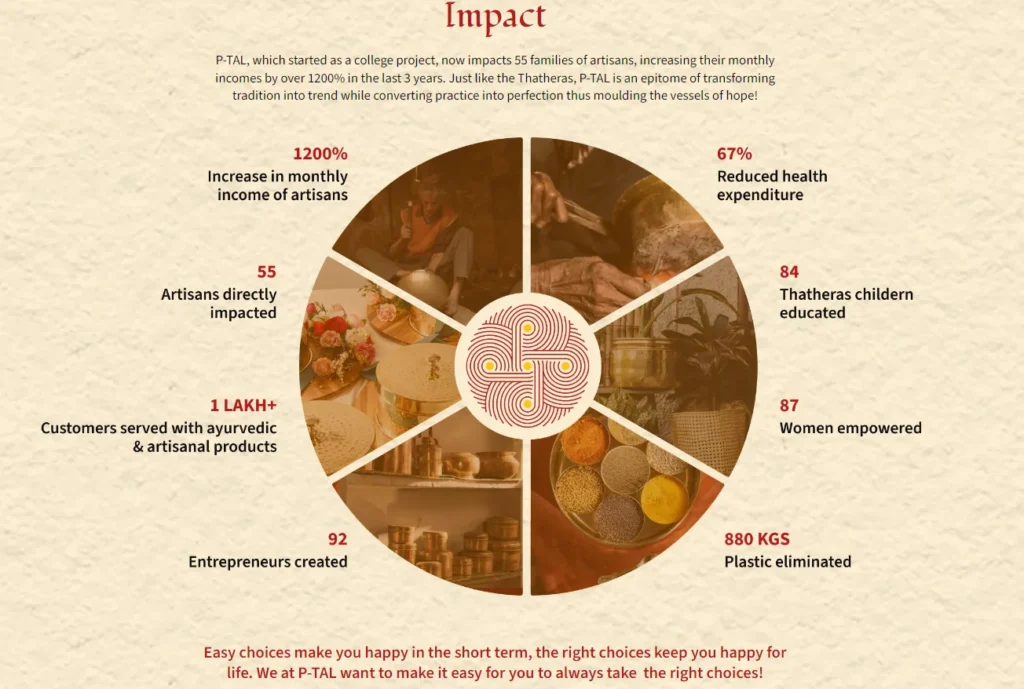
Utensils from P-tal have several benefits, that include but are not limited to:
- All P-Tal utensils are naturally non-stick and hence it eliminates the need for Teflon coating which is very poisonous.
- Moreover, It is said that if you drink water that was kept overnight in a copper utensil, the water helps improve digestion, metabolism and immunity.
- Food cooked in brass utensils retain 90% of the nutrients, whereas stainless steel or aluminum utensils retain only to 20-30% of the nutrients.
Owing to the above-mentioned benefits, their best selling products are:
To check out other products offered by P-Tal, visit their website www.ptal.in
P-Tal Market Analysis
Types of Customers
As explained in their Shark Tank India pitch, customers buy from them for 3 major reasons:
- Health Benefits: These customers mostly buy the brass cookware products.
- Enhanced Taste: From customer feedback, they learned that a lot of customers buy their products because food tasted better when cooked in their utensils.
- Design and Look: These customers mostly bought from dinnerware utensils for gifting and to serve food to guests.
Market Size
During the pitch, the P-Tal team claimed that the total market size for their industry in India is estimated to be around 30,000-35,000 Crores (organized and unorganized) out of which approximately, 8000 Crores is the organized sector with players like Prestige, Hawkins, Borosil and Milton with the major share.
Unit Economics
Aditya Aggarwal explained the unit economics thoroughly in the Shark Tank India episode. The company has a 6% positive EBITDA and details are as follows:
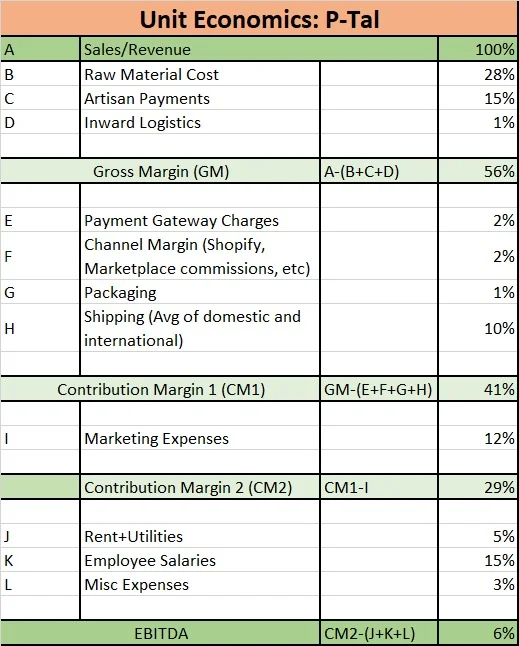
Financial Performance of P-Tal in the Last 5 Years
P-Tal started selling in 2019, and since then, they’ve been doing well. Here’s how their sales have gone up:
- Sales in FY 2019-20: Rs. 21 Lakhs
- Sales in FY 2020-21: Rs. 85 Lakhs
- Sales in FY 2021-22: Rs. 2.76 Crores
- Sales in FY 2022-23: Rs. 3.98 Crores
- Sales in FY 2023-24: Rs. 9 Crores (Estimated)*
*By October 2023, when the pitch was shot, P-Tal had crossed ₹3.9 crores in sales, and planned to hit ₹9 crores by the end of the financial year.
Sales Breakdown
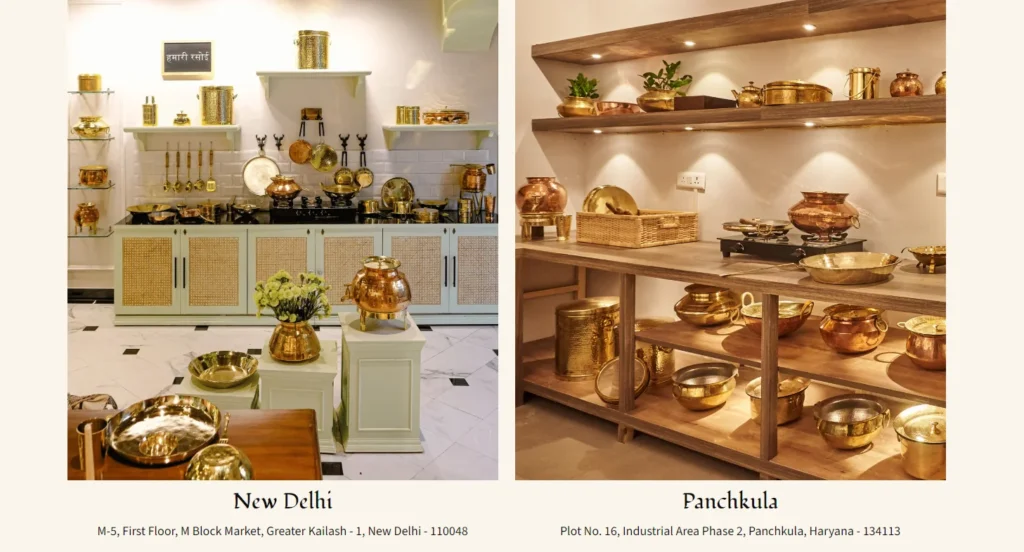
The company has a omnichannel sales model, where they sell through their own website, through e-commerce platforms (like Amazon, Tata Cliq, etc.) and through a company owned store in Gk-1 M-Block market in Delhi.
Here is the channel-wise breakdown of their sales:
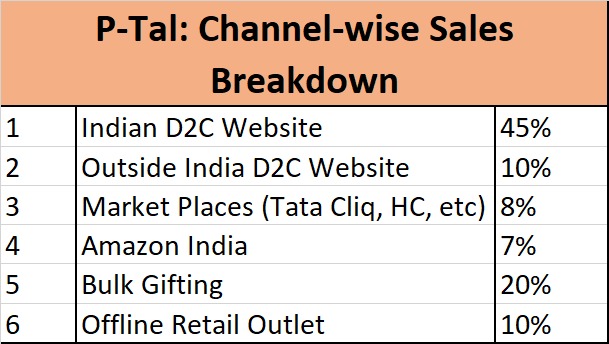
Another things to point out is the vast difference in average order value from India and their NRI/foreign customers.
Average Order Value (India): Rs. 4500
Average Order Value (NRI/Foreign Nationals): Rs. 21,000 (approx USD 250)
Competitors as of 2024
P-Tal is a mass premium brand and comes in the Affordable Luxury segment. They don’t have any direct competitor in the organized sector that are solely focused on providing brass, copper or bronze homeware utensils.
Their closest competitor is Zishta, that sells traditional utensils made from cast iron, brass, etc. Other brands like Milton, Vinod Cookware only offer a product category that sells brass bottles.
Future Plans
- P-Tal plans to broaden its market reach by exploring new distribution channels and expanding its presence domestically.
- Expanding their product line, strengthening their online presence, and exploring international markets are potential future growth strategies.
- They see a lot of growth potential through their D2C website and Amazon in India and US.
SWOT Analysis of P-Tal as of 2024

- Strengths: Products are ayurvedic and eco-friendly and have several health benefits. Customers trust the brand as all utensils are handmade and the company has revived the old art of making utensils.
- Weaknesses: Products have a premium pricing which is justified for the quality they provide, but alternate utensils made from stainless steel and aluminum are much cheaper.
- Opportunities: Only 10% of sales come from outside India. As NRI and foreign nationals have a higher paying capacity (and higher avg order value), there is huge opportunity from US, UK, Europe, Canada and more.
- Threats: Other companies like Zishta, making similar eco-friendly products, could attract customers away from P-Tal. Also, anyone can reach out to the Thathera community and start producing similar utensils.
Recommendations from the Sharks
- Focus on orders from NRI’s and foreign nationals.
- Especially from NRI’s as they will connect to the brand faster.
- The brand could start even from a small market and could blow in the US and Europe.
Recommendations from Webrigo Business Solutions
- Of course, US and Europe are a huge opportunity. A city like London, where Indians are well settled and have a population share could be more profitable and easier to sell.
- Since, anyone can start selling similar products, P-Tal will have to focus on strong relations with the community and have a strong supply-chain management.
- In the pitch, the founders said that sell approx Rs. 7.5 Lakhs per month from their offline store and they break even at Rs.5.5-6 Lakhs. Which means, a profit of Rs. 1.5-2 Lakhs per month.
The company could open more stores in other high-net worth areas of Delhi and other cities through company outlets or franchisee models and grow their offline presence.
Read More at:
- Analysis of Shark Tank Canvaloop: Converting Agri-Waste into Fiber
- How to Start a Business in 2024 | Easy Guide
Deal or No Deal?

Impressed with the pitch and the strong founders, all shark were interested to get a piece of the business. The founders had asked for Rs. 50 Lakhs only, and ended up with a deal of Rs. 1 Crore in exchange of 3.2% equity with all the sharks joining their cap table.
A 5-shark deal is rare and it shows the confidence of all sharks in the founders, the company they have built and its future.
Conclusion on P-Tal Startup
P-Tal is a promising brand that makes traditional, eco-friendly homeware. Their products are loved because they’re made with care and help the environment.
This article outlines P-Tal’s strengths, areas for improvement, growth opportunities, and potential threats.
People care more and more about things like tradition and health, which are P-Tal’s strong points. The Startup currently doesn’t have direct competitors, but brands like Milton can be a competitor as they sell some brass utensils.
So, while there’s room to grow, they’ll need to keep being innovative to keep their place in the market.

